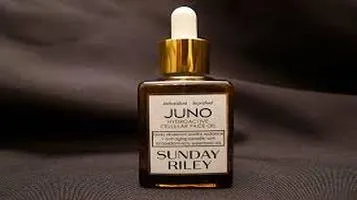The Renaissance of Facial Oils: A Comprehensive Review
Facial oils are luxurious skincare products that have gained popularity for their ability to nourish, hydrate, and rejuvenate the skin. These oils are formulated with a blend of natural and botanical ingredients such as jojoba, argan, rosehip, and marula oils, each offering unique benefits. They are rich in essential fatty acids, antioxidants, and vitamins that help to lock in moisture, improve skin elasticity, and promote a radiant complexion. Suitable for all skin types, including oily and sensitive skin, facial oils can balance sebum production and soothe inflammation. They are typically applied after cleansing and toning, either alone or mixed with a moisturizer, to enhance the skin's natural glow and provide a protective barrier against environmental stressors.

In the vast, ever-evolving landscape of skincare, few products have witnessed as dramatic a resurgence as facial oils. Once relegated to the back shelves, overshadowed by lotions and creams, facial oils have made a triumphant return, hailed by dermatologists and beauty enthusiasts alike for their transformative benefits. This review delves into the myriad reasons behind the renaissance of facial oils, their benefits, and potential drawbacks, providing a comprehensive guide for anyone considering incorporating these elixirs into their skincare regimen.
The Benefits of Facial Oils
1. Deep Hydration and Nourishment:
One of the standout attributes of facial oils is their unparalleled ability to provide deep hydration. Unlike water-based moisturizers, oils have lipophilic properties, allowing them to penetrate the lipid barrier of the skin more effectively. This ensures that moisture is locked in, providing long-lasting hydration. Oils like jojoba, argan, and rosehip are particularly celebrated for their hydrating prowess, making them ideal for dry and dehydrated skin.
2. Rich in Antioxidants:
Many facial oils are packed with antioxidants, which play a crucial role in combating free radicals and preventing oxidative stress. Oils such as marula, pomegranate, and sea buckthorn are rich in vitamins C and E, which not only protect the skin from environmental damage but also promote collagen production and skin elasticity.
3. Balancing Oil Production:
It may seem counterintuitive, but facial oils can be a boon for those with oily or acne-prone skin. Certain oils, like jojoba, mimic the skin's natural sebum, tricking the skin into producing less oil. This can help balance the skin's oil production, reducing the likelihood of breakouts and giving the skin a more even, matte finish.
4. Enhanced Skin Barrier Function:
Oils like squalane and ceramides are known for their ability to reinforce the skin's natural barrier. This is particularly beneficial for individuals with sensitive or compromised skin, as a strong barrier helps protect against irritants and allergens while retaining essential moisture.
5. Anti-Aging Properties:
The nourishing and hydrating qualities of facial oils make them potent anti-aging agents. Ingredients like rosehip oil, which is rich in essential fatty acids and vitamin A, can help reduce the appearance of fine lines, wrinkles, and age spots, promoting a youthful, radiant complexion.
The Drawbacks of Facial Oils
Despite their many benefits, facial oils are not without their caveats. It's essential to approach them with a discerning eye and an understanding of your skin's unique needs.
1. Potential for Clogging Pores:
Not all oils are created equal. Some oils, particularly those with high comedogenic ratings, can clog pores and exacerbate acne. Coconut oil, for instance, while deeply hydrating, is notorious for causing breakouts in those with acne-prone skin. It's crucial to select non-comedogenic oils if you are prone to clogged pores.
2. Allergic Reactions:
As with any skincare product, there's a risk of allergic reactions. Essential oils, in particular, can be potent and may cause irritation or sensitization in some individuals. It's always advisable to perform a patch test before introducing a new oil into your routine.
3. Over-Application:
A little goes a long way with facial oils. Over-application can lead to a greasy appearance and may even disrupt the skin's natural oil balance. It's best to start with a few drops and adjust based on your skin's response.
Choosing the Right Facial Oil
Selecting the right facial oil can be a daunting task given the plethora of options available. Here are some tailored recommendations based on skin type:
1. Dry Skin:
- Argan Oil: Rich in vitamin E and fatty acids, it deeply nourishes and hydrates.
- Marula Oil: Lightweight yet highly moisturizing, ideal for combating dryness.
2. Oily/Acne-Prone Skin:
- Jojoba Oil: Mimics the skin's natural sebum and helps regulate oil production.
- Tea Tree Oil: Known for its antibacterial properties, it can help combat acne.
3. Sensitive Skin:
- Squalane: Lightweight and non-irritating, it’s perfect for sensitive skin.
- Chamomile Oil: Soothing and anti-inflammatory, it calms irritated skin.
4. Aging Skin:
- Rosehip Oil: Packed with vitamins A and C, it helps reduce signs of aging.
- Pomegranate Seed Oil: Rich in antioxidants, it promotes skin regeneration.
Incorporating Facial Oils into Your Routine
To maximize the benefits of facial oils, they should be applied correctly. Here’s a simple guide:
1. Cleanse your face thoroughly to remove any impurities.
2. Tone to ensure your skin's pH balance is restored.
3. Apply a few drops of the facial oil to your fingertips and gently press into the skin, focusing on areas that need the most hydration.
4. Moisturize if needed, sealing in the oil and providing an additional layer of hydration.
Conclusion
Facial oils have undeniably cemented their place in the modern skincare lexicon. Their ability to provide deep hydration, balance oil production, and offer anti-aging benefits makes them a versatile addition to any skincare routine. However, as with any product, it's crucial to choose the right oil for your skin type and use it judiciously. With the right approach, facial oils can transform your skin, leaving it radiant, nourished, and balanced.






